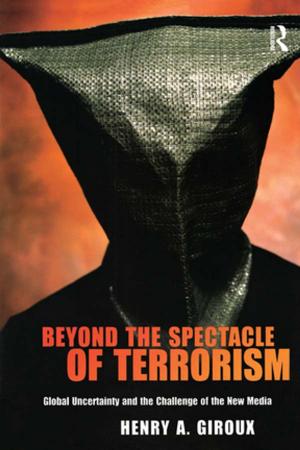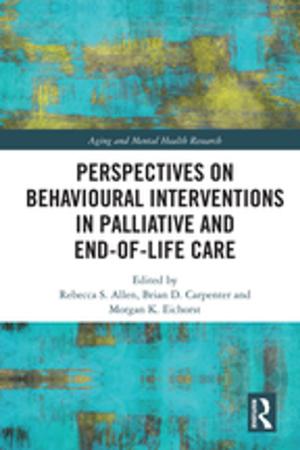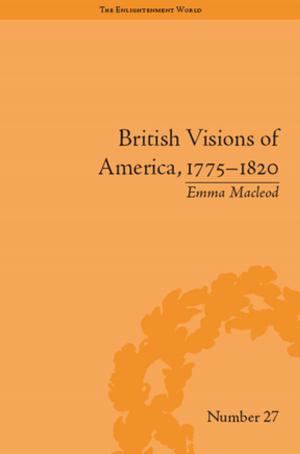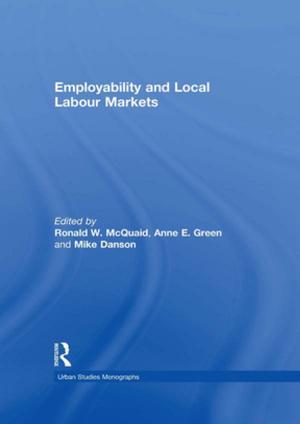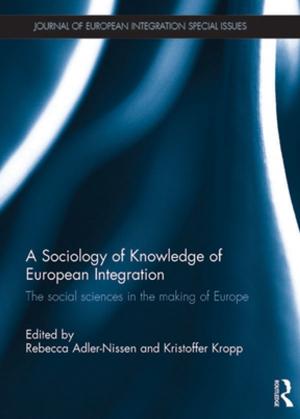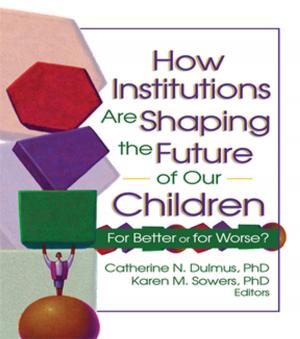Rethinking Family-school Relations
A Critique of Parental involvement in Schooling
Nonfiction, Reference & Language, Education & Teaching, Educational Theory, Philosophy & Social Aspects| Author: | Maria Eulina de Carvalho | ISBN: | 9781135661373 |
| Publisher: | Taylor and Francis | Publication: | October 1, 2000 |
| Imprint: | Routledge | Language: | English |
| Author: | Maria Eulina de Carvalho |
| ISBN: | 9781135661373 |
| Publisher: | Taylor and Francis |
| Publication: | October 1, 2000 |
| Imprint: | Routledge |
| Language: | English |
This book addresses the complications and implications of parental involvement as a policy, through an exploratory theoretical approach, including historical and sociological accounts and personal reflection. This approach represents the author's effort to understand the origins, meanings, and effects of parental involvement as a prerequisite of schooling and particularly as a policy 'solution' for low achievement and even inequity in the American educational system.
Most of the policy and research discourse on school-family relations exalts the partnership ideal, taking for granted its desirability and viability, the perspective of parents on specific involvement in instruction, and the conditions of diverse families in fulfilling their appointed role in the partnership. De Carvalho takes a distinct stance. She argues that the partnership-parental ideal neglects several major factors: It proclaims parental involvement as a means to enhance (and perhaps equalize) school outcomes, but disregards how family material and cultural conditions, and feelings about schooling, differ according to social class; thus, the partnership-parental involvement ideal is more likely to be a projection of the model of upper-middle class, suburban community schooling than an open invitation for diverse families to recreate schooling. Although it appeals to the image of the traditional community school, the pressure for more family educational accountability really overlooks history as well as present social conditions. Finally, family-school relations are relations of power, but most families are powerless. De Carvalho makes the case that two linked effects of this policy are the gravest: the imposition of a particular parenting style and intrusion into family life, and the escalation of educational inequality.
Rethinking Family-School Relations: A Critique of Parental Involvement in Schooling--a carefully researched and persuasively argued work--is essential reading for all school professionals, parents, and individuals concerned with public schooling and educational equality.
This book addresses the complications and implications of parental involvement as a policy, through an exploratory theoretical approach, including historical and sociological accounts and personal reflection. This approach represents the author's effort to understand the origins, meanings, and effects of parental involvement as a prerequisite of schooling and particularly as a policy 'solution' for low achievement and even inequity in the American educational system.
Most of the policy and research discourse on school-family relations exalts the partnership ideal, taking for granted its desirability and viability, the perspective of parents on specific involvement in instruction, and the conditions of diverse families in fulfilling their appointed role in the partnership. De Carvalho takes a distinct stance. She argues that the partnership-parental ideal neglects several major factors: It proclaims parental involvement as a means to enhance (and perhaps equalize) school outcomes, but disregards how family material and cultural conditions, and feelings about schooling, differ according to social class; thus, the partnership-parental involvement ideal is more likely to be a projection of the model of upper-middle class, suburban community schooling than an open invitation for diverse families to recreate schooling. Although it appeals to the image of the traditional community school, the pressure for more family educational accountability really overlooks history as well as present social conditions. Finally, family-school relations are relations of power, but most families are powerless. De Carvalho makes the case that two linked effects of this policy are the gravest: the imposition of a particular parenting style and intrusion into family life, and the escalation of educational inequality.
Rethinking Family-School Relations: A Critique of Parental Involvement in Schooling--a carefully researched and persuasively argued work--is essential reading for all school professionals, parents, and individuals concerned with public schooling and educational equality.


